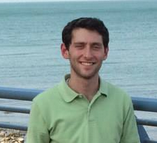Musings from Students of the Pardes Institute of Jewish Studies in Jerusalem
Posted on October 8, 2014 by Steve Strauss
In Pirkei Avot, we learn the world rests upon 3 things: Torah, service of G-d, and acts of loving kindness.
 Here at Pardes, we do an excellent job in studying Torah. We engage with text for hours on end each day, debating with our chevruta and analyzing each word we read. We diligently criticize and construct arguments and challenge our teachers. Pardes also provides opportunities for us to pray and serve G-d daily or weekly if we choose to do so. We may also attend learners’ services or take classes on prayer.
Here at Pardes, we do an excellent job in studying Torah. We engage with text for hours on end each day, debating with our chevruta and analyzing each word we read. We diligently criticize and construct arguments and challenge our teachers. Pardes also provides opportunities for us to pray and serve G-d daily or weekly if we choose to do so. We may also attend learners’ services or take classes on prayer.
Pardes also helps us fulfill the last aspect of these three – acts of loving kindness. Built into our class schedule is an afternoon for us to dedicate ourselves to a weekly service project.
The Talmud states that Torah study is greater than action because study leads to action (Kiddushin 40b). Starting today, our Thursday afternoons are a chance for us to elevate the learning we do each day by acting upon the values we learn. This is a chance for us to get out into the world, encounter Israel, Jerusalem, and Israelis outside of our Pardes bubble, and take a break from Torah study while still engaging in Jewish acts guided by Jewish values. This is yet another way in which Pardes sets itself apart from many other educational institutions.
This afternoon, for example, we are going to see what shmitta looks like in action. We may have studied shmitta in the Beit Midrash or in classes, or read about it in the news. Perhaps we may not have heard about it at all. Irrespective of that, today is a chance for us to go and see shmitta as a living phenomenon: to live shmitta, and to be individuals acting out a thousands-year-old practice rooted in the Torah we read and study every day here at Pardes. We will use what we know or what we will learn about shmitta to act by picking produce and then donate it to those in need.
In Pirkei Avot, Rabbi Elazar ben Azariah teaches us that a person whose wisdom exceeds his good deeds is like a tree with many branches and few roots (in Hebrew, shorashim). When the wind comes, the person is uprooted and turned upside down. But when a person’s good deeds exceed his wisdom, he becomes a tree with few branches and numerous roots. Even if all the winds in the world blew against this tree, it would not budge.
Our weekly service projects are our chance to lay down our roots. By translating the lessons we learn into action in our new communities, we are given an opportunity to see the Torah in action. We will have a chance to gain a deeper understanding for what Judaism has to say about giving back to others. We can connect with Israel and work to cultivate what can become an extremely meaningful and worthwhile lifelong practice. We will be able to solidify the foundations of who we are as Jews and who we are as people so that we can stand firm in our beliefs.
Our service projects are also helping lay down roots for the organization we are volunteering for. By dedicating a little bit of our time each week to these amazing organizations, we are solidifying their future and helping them ensure that their roots are strong enough to keep doing the amazing work they are doing long after we stop volunteering there.
I hope we all make the most of our Thursday afternoons, starting with our trip to Leket today, and that our experiences connect us to Jerusalem, Israel, and one another in new and exciting ways throughout the year.